Intro
Effectively treat RSV symptoms with proven remedies, easing respiratory issues, bronchiolitis, and pneumonia, while managing cough, fever, and congestion in infants and adults.
Respiratory syncytial virus (RSV) is a common and highly contagious virus that affects people of all ages, but it's most severe in young children and older adults. RSV symptoms can range from mild to severe and can be treated effectively with the right approach. In this article, we will delve into the world of RSV, exploring its symptoms, treatment options, and prevention strategies.
RSV is a major cause of respiratory illness, particularly during the winter months. It's estimated that nearly all children will have been infected with RSV by the time they reach the age of two. While most people recover from RSV on their own, some individuals may experience severe symptoms that require medical attention. Understanding the symptoms of RSV is crucial in treating the condition effectively.
Treating RSV Symptoms
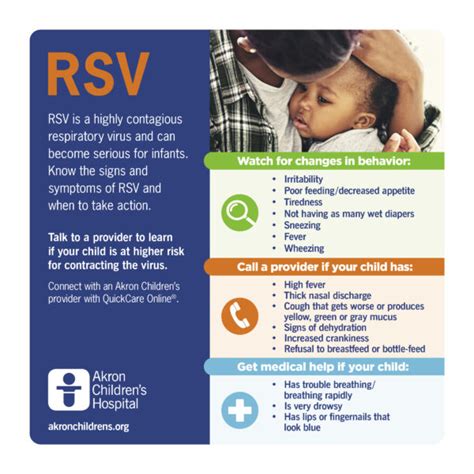
Treating RSV symptoms involves a combination of self-care measures and medical interventions. For mild cases, self-care measures such as getting plenty of rest, staying hydrated, and using over-the-counter medications to relieve symptoms can be effective. However, for more severe cases, medical attention may be necessary. In this section, we will explore the various treatment options available for RSV symptoms.
Self-Care Measures
Self-care measures are essential in treating RSV symptoms. These measures include: * Getting plenty of rest to help the body recover * Staying hydrated by drinking plenty of fluids * Using over-the-counter medications to relieve symptoms such as fever and congestion * Practicing good hygiene to prevent the spread of the virusUnderstanding RSV Symptoms
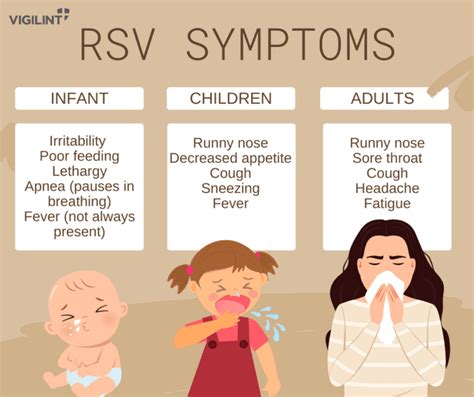
Understanding RSV symptoms is crucial in treating the condition effectively. RSV symptoms can range from mild to severe and can include:
- Runny nose
- Coughing
- Sneezing
- Fever
- Loss of appetite
- Fatigue
- Wheezing
- Shortness of breath
Severe RSV Symptoms
Severe RSV symptoms can be life-threatening and require immediate medical attention. These symptoms include: * Difficulty breathing * Chest pain or tightness * Severe headache * Confusion or disorientation * Severe fatigue * Bluish discoloration of the skinPreventing RSV
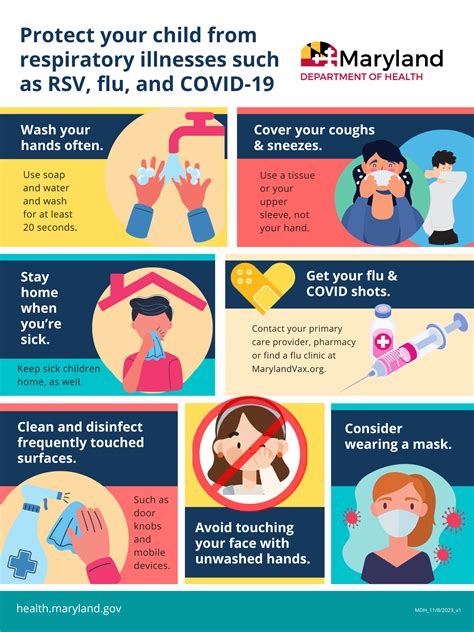
Preventing RSV is crucial in reducing the risk of infection. Prevention strategies include:
- Practicing good hygiene such as washing hands frequently
- Avoiding close contact with individuals who are infected with RSV
- Avoiding sharing utensils or personal items
- Getting vaccinated against RSV
- Using a humidifier to add moisture to the air
RSV Vaccination
RSV vaccination is available for certain individuals, particularly young children and older adults. The vaccine is administered via injection and can provide protection against RSV for several months. However, the vaccine is not 100% effective, and individuals may still contract RSV despite being vaccinated.Managing RSV Complications
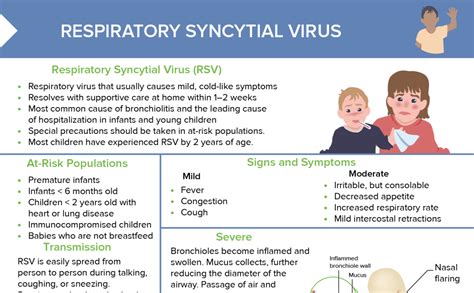
Managing RSV complications is crucial in reducing the risk of long-term damage. RSV complications can include:
- Bronchiolitis
- Pneumonia
- Asthma
- Respiratory failure
Treating RSV Complications
Treating RSV complications involves a combination of medical interventions and self-care measures. For bronchiolitis, treatment may involve oxygen therapy and medication to relieve symptoms. For pneumonia, treatment may involve antibiotics and hospitalization. For asthma, treatment may involve medication and lifestyle changes.RSV and Other Conditions
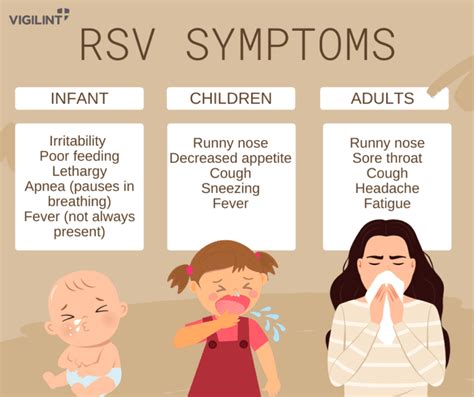
RSV can co-exist with other conditions, making diagnosis and treatment challenging. These conditions include:
- Influenza
- Common cold
- Pneumonia
- Asthma
- Chronic obstructive pulmonary disease (COPD)
Diagnosing RSV
Diagnosing RSV involves a combination of physical examination, medical history, and laboratory tests. Laboratory tests may include: * Rapid antigen test * Polymerase chain reaction (PCR) test * Blood testsLiving with RSV
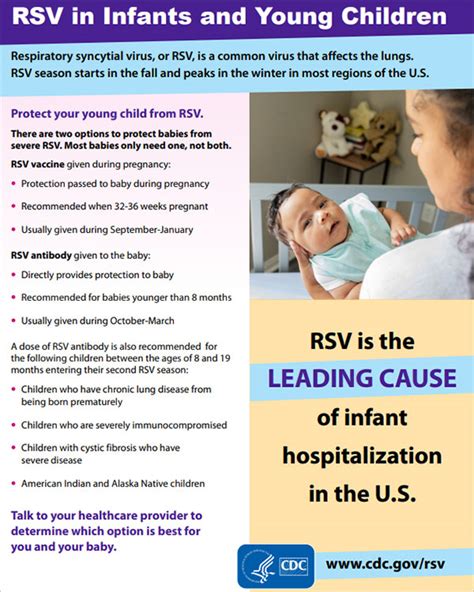
Living with RSV requires a comprehensive approach that involves self-care measures, medical interventions, and prevention strategies. Individuals with RSV should:
- Get plenty of rest
- Stay hydrated
- Practice good hygiene
- Avoid close contact with others
- Get vaccinated against RSV
Coping with RSV
Coping with RSV can be challenging, particularly for young children and older adults. Individuals with RSV should: * Seek support from family and friends * Practice stress-reducing techniques such as meditation and deep breathing * Stay informed about RSV and its treatment optionsFuture Directions

Future directions in RSV research involve the development of new treatments and prevention strategies. These include:
- New vaccines
- Antiviral medications
- Immunotherapy
- Gene therapy
Emerging Trends
Emerging trends in RSV research include the use of: * Artificial intelligence * Machine learning * Big data analytics * Personalized medicineWhat are the symptoms of RSV?
+RSV symptoms can range from mild to severe and can include runny nose, coughing, sneezing, fever, loss of appetite, fatigue, wheezing, and shortness of breath.
How is RSV treated?
+RSV treatment involves a combination of self-care measures and medical interventions. Self-care measures include getting plenty of rest, staying hydrated, and practicing good hygiene. Medical interventions may include oxygen therapy, medication, and hospitalization.
Can RSV be prevented?
+Yes, RSV can be prevented by practicing good hygiene, avoiding close contact with individuals who are infected with RSV, getting vaccinated against RSV, and using a humidifier to add moisture to the air.
What are the complications of RSV?
+RSV complications can include bronchiolitis, pneumonia, asthma, and respiratory failure. These complications can be managed with medical interventions and self-care measures.
How can I cope with RSV?
+Coping with RSV can be challenging, but individuals can seek support from family and friends, practice stress-reducing techniques, and stay informed about RSV and its treatment options.
In conclusion, treating RSV symptoms effectively requires a comprehensive approach that involves self-care measures, medical interventions, and prevention strategies. By understanding the symptoms of RSV, individuals can take steps to prevent infection and manage complications. We invite readers to share their experiences with RSV, ask questions, and seek support from others. Together, we can work towards reducing the impact of RSV and improving the lives of those affected by this condition.
